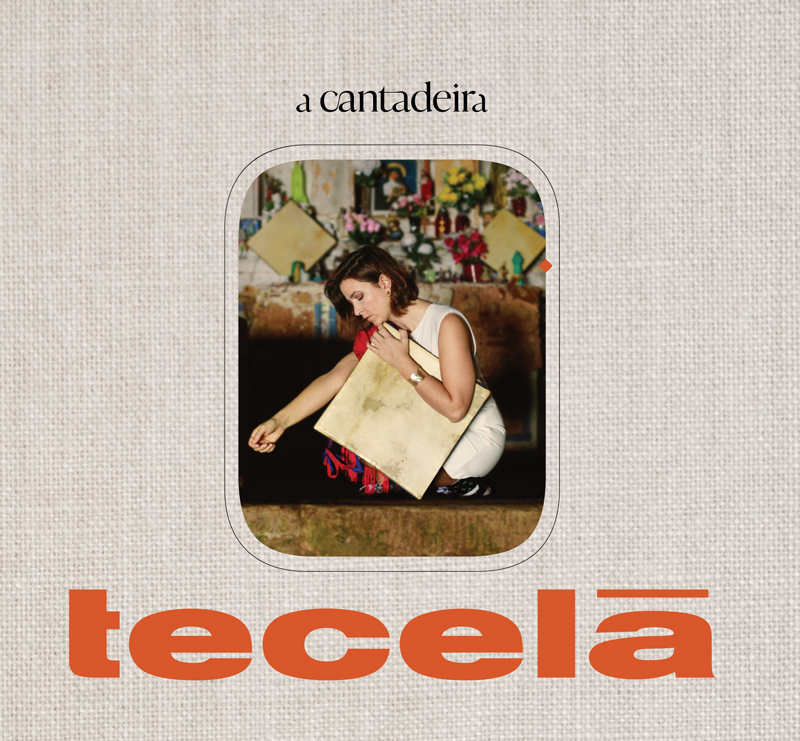A Cantadeira – Tecelã (Repasseado, 2024)
Joana Negrão, known professionally as A Cantadeira, was born in Setúbal, Portugal, in 1983. Her musical career is deeply rooted in Portuguese oral tradition music. Negrão has built a solid reputation by balancing research into traditional oral songs with the infusion of contemporary ingredients. These new elements reflect modern sentiments while using traditional instruments.
Negrão has been part of several projects, including Dazkarieh (five albums) and Seiva (three albums). Currently, she is pursuing a solo career with A Cantadeira, utilizing her gifted and lovely voice in multiple layers as well as traditional percussion instruments like the adufe, pandeireta, and the Portuguese bagpipe.

A Cantadeira celebrates the legacy of women, drawing inspiration from the cherished voices of mothers, aunts, and grandmothers who have passed down their strong and emotional heritage. Her solo performances weave together ancestral and modern soundscapes, with her sweeping voice as the central element.
Her album Tecelã aims to preserve and reinvent musical traditions, creating new songs that honor the elders. Negrão embraces her identity as a singer, efficiently mixing the ancestral with contemporary issues as well as predicaments she faces as a woman, mother, and artist. Her connections with people who maintain ancient musical traditions, such as the Adufeiras of Monsanto and women from central and northern Portugal with their polyphonic singing, have enriched her culturally and emotionally. This richness is evident in her recordings and live performances.
Joana Negrão says: “Tecelã is an album where I want to keep musical traditions alive, but also reinvent them, creating new traditions and new songs with the legacy of the old ones. In this work, I truly assume myself as a singer, immersing myself in my voice to find my own identity, but also that of the Portuguese singers of our collective memory. I wanted the ancestral tradition of the songs to blend perfectly with what I feel today and with the issues and dilemmas of my days as a Woman, Mother, and Artist. My constant contact with people who still live the oldest musical traditions in their own context, from the Adufeiras of Monsanto, in Beira-Baixa, to the women in the center and north of Portugal, with their polyphonic singing, has given me an enormous cultural and emotional richness, which I always carry with me and which I hope comes through on this record and when I sing on stage.”
Buy Tecelã.


